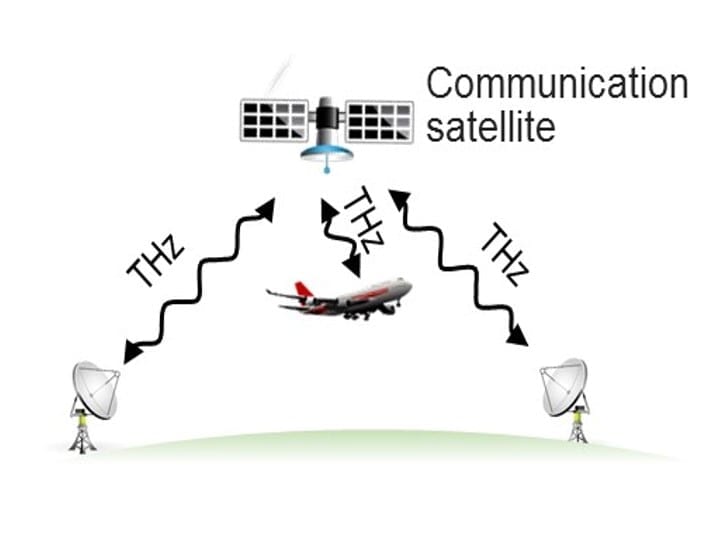
In the coming Smart Machine Age (SMA), humans will be needed to do the jobs that technology won’t be able to do well: jobs requiring higher order critical, creative and innovative thinking and emotionally engaging with others. Unfortunately, the science is clear that we are not naturally good at those skills because of our reflexive ways of thinking and behaving. A profound problem for us in executing those uniquely human SMA Skills is that we usually perceive and process the outside world in an inwardly focused, self-protective manner.
Staying relevant and optimizing our thinking, listening, relating and working with others in order to excel at those SMA Skills will require us to become more of an open system — more open to what’s going on in the world outside our heads and more open to others. Our inward focus will need to change to an outward focus with respect to others because it’ll be very hard for most all of us to excel at the SMA Skills by ourselves. We’ll need the help of others, and that requires that we emotionally relate and connect to them.
“Otherness”
Connecting to and emotionally relating with other human beings is fundamental to human motivation. That’s not anecdotal; science has proved it over and over. This need to belong with and attach to others is something innate across cultures, ethnicities and gender. Many studies have shown that connecting emotionally and building relationships are not just about finding love and friendship and being happy in our personal lives; they’re embedded within our drive to live, learn and succeed.
Research shows that students who emotionally connect with a teacher do better in school, employees who emotionally connect with coworkers are more productive, and emotional connection improves client and customer service. We know this intuitively without the data, yet we don’t seem to understand or acknowledge the fact that our tendencies to be self-obsessed and our individualistic, hypercompetitive culture are often at odds with making these emotional connections and building these meaningful relationships at work.
That’s a real problem in the SMA because higher-level thinking requires us to connect with other people who can help us get past our biases. It’s also crucial to engaging in the kind of teamwork and collaboration that leads to creativity and innovation. Most important, as of yet, smart machines, robots and AI cannot fully replace the kind of empathetic emotional and social connections that humans have with other humans. Being able to hone our emotional and social skills remains one of our few advantages. The bottom line is that in the SMA very few of us will succeed on our own. We’ll need the help of others, which means we’ll need to be the kind of people whom others will want to help.
That requires much more than being “nice”: It means being a trustworthy helper in return.
Connecting and Building Trust
How does one build trust? False modesty and going through motions won’t work. Research supports the fact that we’re all pretty perceptive in determining insincerity and recognizing when people are only out for themselves, which just further undermines trust. Would you trust someone who always has to win or be right? Would you trust someone who views you as a competitor or a means to an end? Would you trust someone who is arrogant, self-promoting, a glory hog and refuses to take ownership of his or her mistakes? Would you trust someone who, when challenged, becomes defensive and refuses to really engage?
Barbara Fredrickson describes the biochemistry and neuroscience of meaningful platonic relationships in Love 2.0. They require us, she said, to “escape our cocoon of self-absorption”— a phrase that goes to the root of Humility. Relationship building also requires that we be willing to invest ourselves in the well-being of another solely for his or her sake and not because there’s something in it for us, according to Fredrickson. It’s something I (Ed) had to learn the hard way.
In my first leadership position in investment banking on Wall Street, I had high-producing teams. My style was very much “get it done.” I led by example, never asked my people to do anything I wouldn’t do myself, and believed that integrity, truthfulness and treating all people with dignity were nonnegotiable. I told my team that if they produced, I would get them raises and bonuses and help them get promotions and/or further schooling. But what I didn’t do was to get to know them as individuals.
During those same work years, I failed to turn off my work mode when I got home. In my wife’s words, I had become a business machine devoid of emotions and incapable of emotionally engaging and caring about her as a person. She told me that I needed to change, or she was out. It was then that I sought out a highly trained, well-respected executive coach. She helped me understand how meaningful relationships would add so much to my life and yield better outcomes at home and work. But it would require a lot of hard work by me.
She was right. I learned that if I took the time to really get to know my work teams individually over lunches and frequent personal check-ins, magical things would happen. It seemed the more they felt that I truly cared about them as human beings — not just as a means to my success — the more successful they were and in turn I was. It took time to connect and relate. It takes authentic caring because you can’t fake this stuff.
The more I slowed down and took the time to get to know my team, the more we connected and the more I legitimately did care about them. The more honest I was with them about me personally, the more they trusted me and were open and honest with me about their personal hopes, dreams, fears and so forth. They always knew that they had to perform, but now they also knew that I was there for them personally because I cared about them as people. And I really did. That took our work conversations to a higher level of openness, and that led to better thinking and innovation.
In his book Humble Consulting: How to Provide Real Help Faster, Edgar Schein says that these types of more personal, open and trusting work conversations overcome “professional distance” and lead to what he calls “Level 2 relationships.” Like him, we believe that we build such higher-quality relationships by investing time in really getting to know each other through humble inquiry and dialogue: asking open-ended personal questions, exhibiting an authentic caring attitude toward the other person, and disclosing personal thoughts and feelings.
A recent company-wide research project at Facebook showed the importance of this. In 2016, Facebook disclosed the findings of a study of its highest-performing teams. The purpose was to learn what the managers did to get that high performance. The number one finding was that high-performance managers at Facebook cared about their team members. Likewise, decades of research by Gallup Inc. on its Q12 Employee Engagement diagnostic have shown that the most important factor in job satisfaction is how your boss treats you.
Learn more: TO EXCEL IN THE SMART MACHINE AGE, WE NEED OTHERS
[osd_subscribe categories=’Smart-Machine-Age’ placeholder=’Email Address’ button_text=’Subscribe Now for any new posts on the topic “SMART MACHINE AGE”‘]
Receive an email update when we add a new SMART MACHINE AGE article.
The Latest on: Smart Machine Age
[google_news title=”” keyword=”Smart Machine Age” num_posts=”10″ blurb_length=”0″ show_thumb=”left”]
via Google News
The Latest on: Smart Machine Age
- 10 Best Fully Automatic Washing Machines in India (2024)on May 3, 2024 at 5:46 pm
In this age of improved technology, it’s hard to see anybody opt for manual laundry because it is a highly tedious household task. According to a survey, almost ...
- Creating a Smart Home on a Budgeton May 3, 2024 at 11:45 am
In this digital age, the concept of a smart home has become increasingly popular, offering convenience, efficiency, and security. But you might be thinking, “Isn’t creating a smart home expensive?” ...
- Automatic age verification comes to self-checkouton May 2, 2024 at 3:20 am
An AI-driven solution that’s being tested in Germany has eliminated the need for cashier intervention in 80% of age-restricted transactions, manufacturer Diebold Nixdorf said.
- Smart washing machines explainedon May 1, 2024 at 5:00 pm
Smart new wi-fi enabled washing machines are becoming increasingly popular, but what exactly are they, how do they work and how much will they cost? Read on to find out more about the technology, the ...
- What Are Smart Contracts?on May 1, 2024 at 9:52 am
Now, one of the new technologies we’ll be talking about is smart contracts. Decoding Smart Contracts: More than Just Code Imagine you have a vending machine: you select a snack, put in the right ...
- Best 7kg Washing Machines With Smart Features And Superior Cleaningon April 26, 2024 at 1:53 pm
7kg Washing Machines encompass advanced features like inverter technology, in-built heaters, Wi-Fi connectivity, and multiple wash programs. These smart washing machines are known for providing ...
- Smart Home Tech You Need for a More Productive Morningon April 11, 2024 at 8:34 am
If he’s not elbow-deep in the latest hardware, you can find Hunter at one of Long Island’s many beaches, in Manhattan, or gambling away his paycheck. Why I Start My Day With Smart Machines ...
- Best Smart Home Gym Machines to Help You Get in Shapeon April 6, 2024 at 3:00 am
Why are you still using “dumb” workout equipment? The best smart home gym machines can help you level up your workout space and get more out of every training session. Check out some of the ...
- DIY Smart Washing Machine Redesignon November 23, 2023 at 7:45 pm
It is good to know that you could just build your own smart appliances; it is quite feasible. Internet-connected washers are all the rage. Even if your machine doesn’t have the requisite sensors ...
via Bing News









